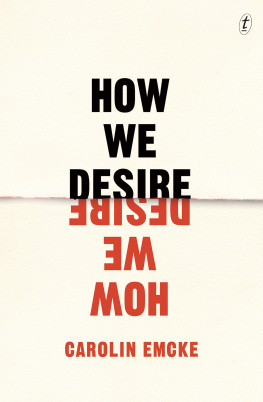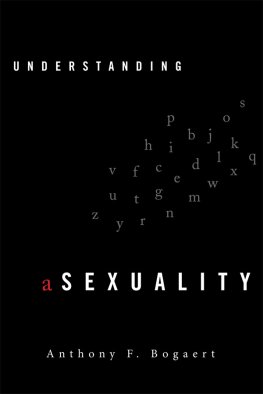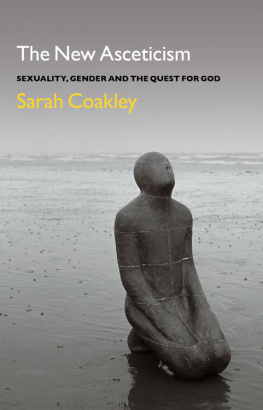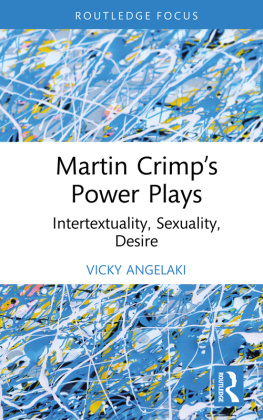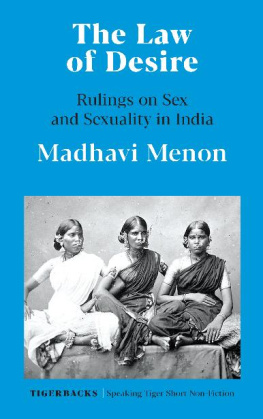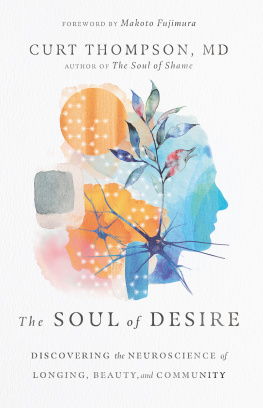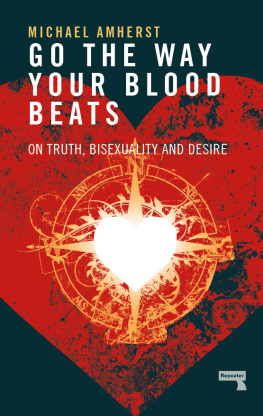
WHAT IF, instead of discovering our sexuality only once, during puberty, we discover it again laterand then again, after that? What if our sexuality reinvents itself every time our desire shifts, every time the object of our desire changes? What if the nature of our desire is constantly changinggrowing deeper, lighter, wilder, more reckless, more tender, more selfish, more devoted, more radical?
HOW WE DESIRE is an enthralling essay about gender, sexuality and love by one of Germanys most admired intellectuals. Its about growing up, and discovering the contours of desire and difference; its about examining enduring prejudice against homosexuality, despite all the progress weve made. And its about questioning the norms and conventions that we slip into, often without even noticing.
In telling her own story, Emcke draws back the veil on how we experience desire, no matter what our sexual orientation. Sensitive, profound and incandescent, this remarkable book pays homage to the radical magic and liberating tenderness of desire itself.
Delicate and vulnerable, angry, passionate, clever and thoughtful. An amazing work. Westdeutsche Allgemeine Zeitung
Names and other identifying details have been changed to protect the privacy of individuals.
Et se trouve autant de diffrence de nous nous-mmes que de nous autrui.
(And there is as much difference between us and ourselves as between us and others.)
MONTAIGNE
Die Saite des Schweigens gespannt auf die Welle von Blut
(The string of silence drawn taut over the swell of blood)
INGEBORG BACHMANN
CONTENTS
I was having such trouble with the world
that I began to make up proverbs.
There are long truths and short truths.
And if punishment doesnt swiftly follow,
you must live away your guilt through life.
JAN SKCEL
Perhaps that is the reason for this story. Perhaps it has to begin with guiltwith a guilt that cannot be chipped away at, but has to be lived away through life. Perhaps it is an illusion that guilt can be hammered away at, as if it were ore or coal, as if you could knock chunks out of itlittle lumps that can be carried off or crumbled to a powder or dissolved. Perhaps telling stories belongs to life the way silence belongs to death. And perhaps the only way to grasp the long truth of this story is to tell it.
I dont know why we were singled out. The other children, and in particular the boys, stood around us, taunting. Maybe there were only boys apart from me; I wouldnt have noticed; the differences didnt much matter at that timenot to me, at any rate. They hung around like a pack of wolves, in a shapeless circle with no apparent order. Awkward but viciously determined, one or other of them would venture forward now and then and give Daniel or me a shove to the shoulder: Go on!
We were standing at the edge of the muddy football pitch that was not in fact a real football pitch, but only a large clearing on the wooded hill next to the school. I dont suppose you get that any morean unpaved playground. This place was a semi-wilderness beside the schoolyard proper with its benches and railings and the perpetually draughty grey toilet block. There were two goals without nets and a pitch without markings.
Go on! They were awed by their own courage, afraid of their own cowardice and intently aware of what the others might think of them. Go on, fight. They swooped and then backed away, their eyes on each other, their diminutive bodies leaning forwards slightly, their heads lowa little too aggressive, a little too submissive, on their guard lest the violence they were trying to direct at us might turn against thema mob of children.
It was our first day of secondary school. The day had begun in the gym; I dont know why the assembly to welcome the new arrivals and announce the first-year class teachers wasnt held in the school hall. We sat on wooden benches next to our mothers and fathers, waiting to see which of the three classes wed been assigned to. It was soon clear what we could expect from the teachers and whether or not they were popular; we had only to listen to the applauseor lack of itgiven by the older students who were attending the ceremony out of boredom or spite. Thinking about it today, I realise how awful those three teachers must have felt. As they stood there at the end of the gym under the basketball hoop, their names were greeted with loud whistles or a mere spattering of applause, so that they knew the second they were appointed class teachers that theyd lost all authority in the eyes of their new pupils. I suppose thats why the older students were therebecause it was their only opportunity all year for revenge. I remember feeling a little sorry for those defenceless teachers. And I remember that although I couldnt have put a name to it at the time, the atmosphere of collective judgement gave me the creeps.
Next we listened to the alphabetical lists, waiting for the first letters of our surnames, hearing our names read out and wondering anxiously whether our primary-school friends would also be announced. I was lucky. My best mates of the past few years were all put in the same class as me. It didnt matter who the unknown children were whose names followed; just as long as you avoided being pushed into that new world alone. Then the assembly was over. Our parents left and we got into our new groups and followed our new teachers down the stairs to the lower-school building. It was a little out of the way, at the foot of the hill; we were in our own sunken world, no longer quite primary school, but not yet properly secondary school either.
And now here we were, at the corner of the football pitch, next to the nettle-covered slope. It was one of the first breaks and must have been a short one because the long break was always used to play football. The short breaks werent good for anything much. Down here by the lower-school buildings there was no bakers, no ice-cream shop, nowhere you could have slipped off to. Later there would be the smokers corner but we were too young for thator too unadventurous. Perhaps we simply had too little imagination to know how to express our love of transgression.
We didnt want toneither Daniel nor I. Rather furtively, we exchanged glances; we didnt know each other. I had no idea what primary school Daniel had been to, but I knew Id never seen him before. He had blond hair and far-apart green eyes, and he was a little taller than me, though not much. His shoulders were square, his arms slightly too long. But I wont have noticed that at the time; we all had something too long or too short; we were all slightly out of joint, if only because we thought the others might think we were. Daniel was pleasant looking. There was no reason why he should have been singled out like that on our first day of school. It was arbitrary. It just happened to be us.
I didnt really know what it was all aboutwhy we were supposed to fight. Daniel hadnt done anything to me; there was no motive. Id often got into scuffles. Id had a fight with someone on my first day of kindergarten, and again on my first day of primary school, so in principle there was no reason not to get into a fight on my first day at secondary school. I had an older brother; fighting was part of my everyday repertoire of survival. But I had to be angry about something; I had to be convinced that the other person had done something mean. I couldnt lash out at somebody just like that, without being provoked. Or maybe I just didnt get the gamethis attempt by an amorphous group to establish a hierarchy, this desperate attempt on the part of each individual pupil to keep out of the circle, avoid being put to the test, avoid being ostracised on that first day. That was the only reason they formed the circle, the only reason they dared go so farthey had no confidence in themselves. That was the only reason they needed these situations that allowed them to label others as weaklings.
Next page
